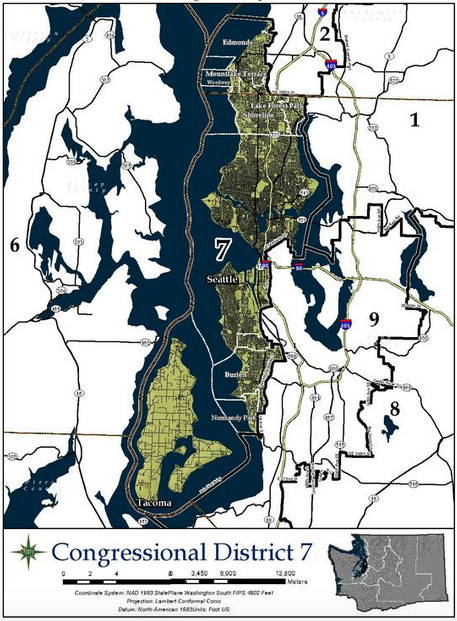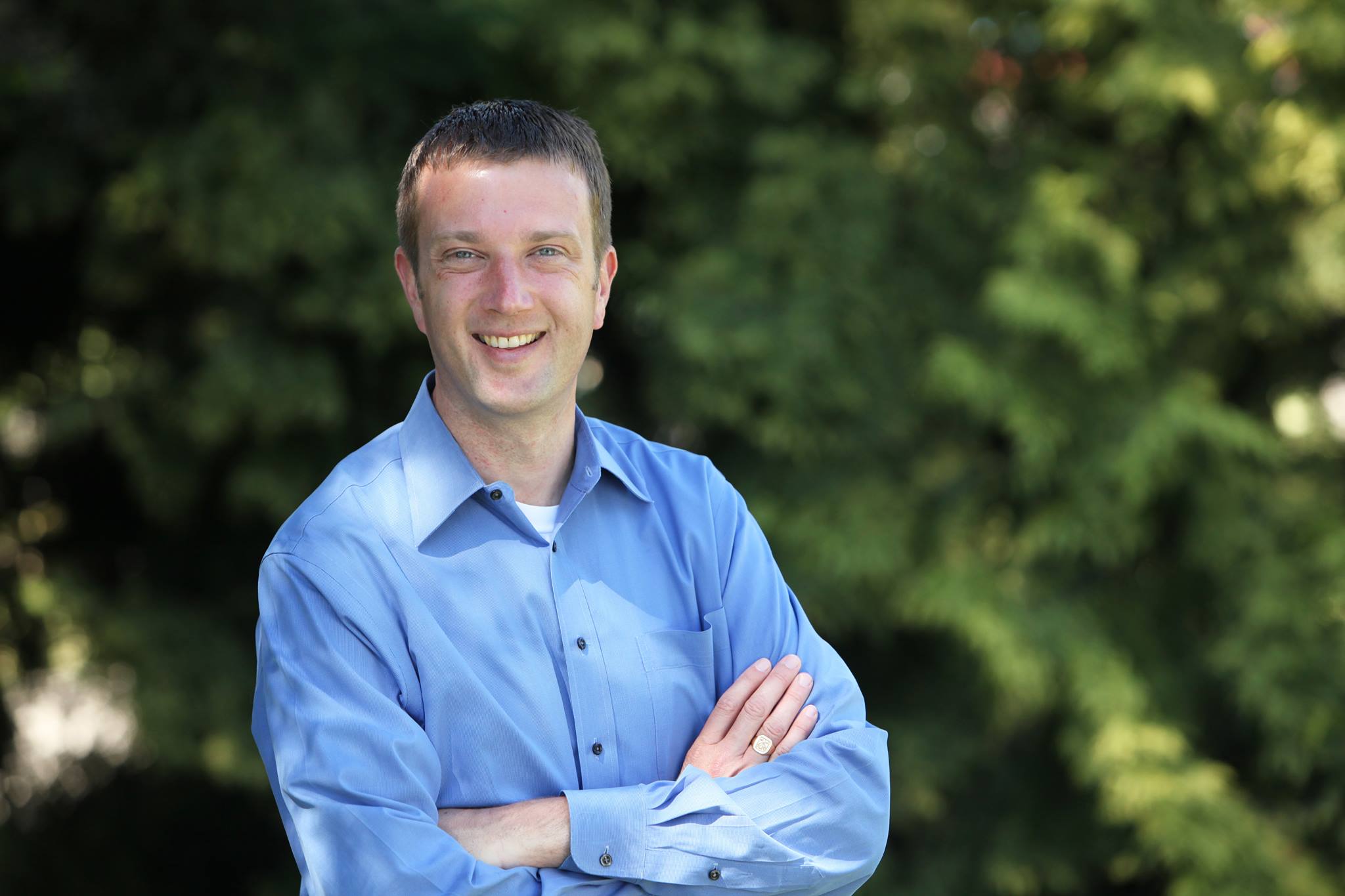Last month, staff from The Urbanist met with candidates seeking election in the open seats of the 43rd Legislative District and 7th Congressional District for interviews. We also surveyed them on urban issues ranging from support of local initiatives like the Seattle Housing Levy and Sound Transit 3 to solutions on affordable housing and policies to address climate change.
Earlier this week, we kicked off with candidate surveys for the 43rd Legislative District (Representative Position 1), but today we’re releasing our candidate surveys for the 7th Congressional District. We reached out to three candidates in our survey, but only received two responses for the high profile race. Next week, our Elections Board will release Primary endorsements of The Urbanist covering both candidates and local issues.
The following is our full survey from Joe McDermott, candidate for the 7th Congressional District (no relation to the retiring fourteen-term Congressperson Jim McDermott).

Do you consider yourself an urbanist? Why/Why not?
I believe in smart growth policies that improve the livability of communities, actively promote economic opportunity, and are good for our environment. As the Budget Chair and now Chair of the King County Council and a Sound Transit Boardmember, I do identify as an “urbanist” and value the important work of making our communities a better, more equitable place to live, work, and play.
What is your strategy for making housing more affordable both for very low-income and middle-class workers?
I am proud of the work I am doing on the Board of Sound Transit to promote affordable housing development around new and existing light rail stations to ensure that our transit infrastructure is truly benefiting communities that need it the most. This approach must become commonplace for federal, state and local transportation and transit projects. For decades now, Congress has been disinvesting in affordable housing in our country. We need to increase funding and availability of Section 8 Vouchers, and increase funding for the National Housing Trust Fund as well to restore the federal partnership that is desperately lacking for local communities working to address these issues as well.
What are your preferred policies for adapting to and mitigating climate change?
Our planet is perilously close to a point of no return, thus we must take immediate action locally, nationally, and internationally to reduce carbon and gas emissions that are accelerating global warming and climate change. I took on these issues when in the Legislature and most recently championed efforts at King County to adopt our Strategic Climate Action Plan, about which Earth Day founder Dennis Hayes said, “Your plan is the best that I’ve seen. It has bold interim and bold final targets, and it proposes policies that would move the county powerfully in the right direction.”
We must foster a strong Blue-Green Alliance between labor and the environmental community to modernize our energy infrastructure towards clean and efficient energy and ensure a just transition for workers and communities in carbon-intense industries and regions. From retraining programs for workers with new clean-energy technology to investing in our transportation systems that reduce congestion and pollution, I will push our country to invest in saving our environment and good jobs.
I am particularly proud of the work I engaged in as a Sound Transit boardmember to bring light rail and other transit options to the region and proposing a new Sound Transit 3 ballot measure for the November 2016 ballot.
What are your preferred policies for ending homelessness?
We’ve learned here in King County that rapid rehousing programs are incredibly effective to getting individuals and families back on their feet and away from homelessness. We need to first understand the reasons for the challenges that brought people to losing their home, whether they are a veteran, struggling with mental illness, survivor of domestic violence, overwhelmed with unpaid bills, or in the case of the overwhelming number of homeless LGBTQ youth, not welcomed at home due to who they are. This allows local governments and organizations to find the best path forward out of homelessness, and the federal government must step up and be a partner to support that important local work, increasing funding for programs like the McKinney Vento Homeless Assistance Grant Program.
What federal policies would you support to create more livable urban communities?
The Federal government must focus on supporting transit oriented development through programs like TIFIA loans. As we look to build out Sound Transit 3 in the coming years, I will fight to bolster national funding for New Starts and ensure our region is competitive in receiving significant support in the coming years to deliver on this important project. Additionally, we should always be sure to support communities throughout the Seventh District and the Puget Sound that are designing roadways that incorporate bikes and pedestrians where appropriate and are utilizing best practices from resources like the NATCO street design guide.
What federal policies would you support to create more equitable urban communities?
One of the challenges with transit development is disproportionate access for communities of color and low income families. The Federal government can do more to ensure that projects track performance measures around how transit expands access to jobs for those traditionally disadvantaged. Department of Transportation Secretary Foxx’s “Ladders of Opportunities” initiative is a great example of how the federal government can play a role promoting and highlighting equitable development of transportation infrastructure that creates jobs, increases access to employment opportunities and delivers safe, multimodal options for families to have a sound quality of life no matter where they live. I will be a steadfast and diligent supporter of efforts to ensure the much needed investment in our transportation infrastructure serves the needs of all Americans.
How can the federal transportation budget better support diverse transportation choices?
Very simply, the federal transportation can create set asides for different types of projects–from bicycling to pedestrian access, transit, light rail, rail–rather than broad funding for highways. This will ensure specific and accountable investments in multimodal transportation around the country.
What revenue mechanisms would you support to create a financially stable transportation budget?
We must secure a sustainable, longer term revenue source that makes sound and smart investments in our urban areas. Whether this comes in the forms of user fees, vehicle miles travelled, or other proposals, we must end the roller coaster of investment that our country sorely needs. Further, we must also make sure that federal partnership with projects can go to local communities who need them the most, which will help expedite the immediate economic activity and associated jobs and will promote the long term economic growth of traditionally disadvantaged regions of our country. I am also interested in proposals for a Transportation Infrastructure Bank which I believe could provide needed financing and capital for the immense amount of work that must be done to upgrade our aging and often failing transportation infrastructure. It will be very important, however, to ensure that any solution like this should include strong Davis-Bacon provisions and PLAs associated with any financed projects to ensure these investments benefit the communities in and around the projects.
Do you plan to support Sound Transit 3?
Yes
Do you support the Seattle Housing Levy?
Yes

Elections Committee
The Urbanist was founded in 2014 to examine and influence urban policies. We believe cities provide unique opportunities for addressing many of the most challenging social, environmental, and economic problems. We serve as a resource for promoting urbanism, increasing political participation, and improving the places we live. The Elections Committee consists of community volunteers and staff members of The Urbanist and is a standing body representing the political values of our organization.


